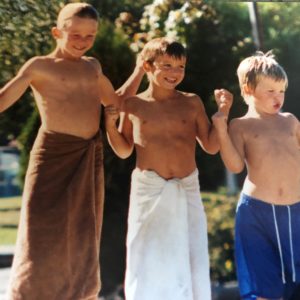
Why Bother To Notice When We Are Wrong?
What would you do if you thought you were doing the right thing only to find out you were wrong? What would you do if you were so convinced you were right that you ignored the obvious? What if your actions proved to be dead wrong?
A Lesson Worth Remembering
Picture a nursing home in the early 1970s. Imagine a sixteen-year-old girl with a shaky self-esteem. That girl was me and I was a newly hired nurse’s aide in a nursing home. Though I’d been employed before; cleaning houses and babysitting, this was my first “real” job. I wore a uniform, a name tag, had a regular schedule and what felt like a hefty paycheck.
Nurse Nancy was my boss. She was cheerful, young and confident, someone I respected, looked up to and aimed to please. She could charm the crankiest resident into breaking into a smile, or convince the most resistive patient to cooperate.
My training with Nancy went smoothly until one day when she was called away and I was left alone.
“I’ll be back as soon as I can. Patsy is next. She is usually cheerful and I’m sure you’ll do fine in getting her up and dressed for dinner,” Nancy assured me as she hurried down the hall.
I opened Pansy’s door and greeted her with my most confident and cheerful voice. While opening the curtains to let in the afternoon sun, I continued to chatter away just like Nancy would do. Looking at Patsy in her bed I noticed my actions had not caused her to stir.
But, I was not discouraged. Sometimes some people could be very stubborn. I kept up my one-sided conversation with Patsy as I rolled her wheelchair into place, close to the bed and locked the wheels. From her closet I chose a brightly colored robe, and found her slippers. Setting these things close by, I surveyed Patsy. She was still and quiet. I stalled a little longer by opening the drawer of her bedside table setting out her hair brush, eyeglasses and false teeth. I was ready, but Patsy remained quiet.
I told myself that I had a job to do and Nancy was depending on me to do it. I took a deep breath to calm my anxious heart and uncovered Patsy. With gentleness, I swung her legs over the side of the bed. Placing my arms under her armpits, I lifted her to a standing position. She was not a light woman. Pivoting her body around, I sat her into her wheelchair.
I gave up talking to her. It was fruitless. I reasoned that she must not like me and would never acknowledge my presence. Yet, I would not let this keep me from doing what I knew I needed to do. I put her robe on her, albeit backwards, brushed her hair and put her glasses on her face. I did not bother with her teeth. I could come back for those later, once she woke up and found herself sitting in the dining room.
Letting out the breath I’d been holding, I opened her door and wheeled her out into the hallway. Seeing Nancy coming toward me, I envisioned how proud she would be of me. I’d done my job, just like she’d trained me to do. But I was wrong. Nancy took one look at Patsy and lifted her wrist to take a pulse.
“She’s dead,” Nancy quietly said.
I was shocked, embarrassed and humiliated. How could I have missed the obvious? I followed Nancy back into Patsy’s room and helped her put her back into her bed.
“I don’t know how you managed to get her up,” Nancy said, “but I bet you’ll never make that mistake again.”
Nancy was right. After that, I never ignored the obvious signs of someone who was no longer alive.
Why bother to notice when we are wrong? It may be embarrassing to admit our mistakes, but when we do, they can become a lesson to remember.
New Release
